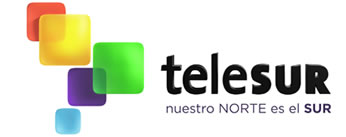
The presidential campaign in Venezuela reaches me indirectly through my room, which is adjacent to the window of my neighbor Tomás, below which he has his television. Tomás follows the details of the rough-and-tumble campaign on Telesur. He thunders against Capriles, whom he considers to be little more than a criminal, and thrills to the son of a very precocious Chávez.
These days I avoid letting the remote linger too long on Channel 15. All the bizarre news and images there no longer surprise me and I am bothered by the excessive propaganda. Cuban television, however, certainly seems to have learned little to nothing from the multi-national broadcaster during all the years in which Telesur was only a three-hour program made up of filtered content.
But besides his devotion to the “candidate of the fatherland” Tomás can also see — if he wanted to see — how Venezuelans are able to choose from among various presidential candidates, how opponents from the opposition are able to make their case and, despite whatever my neighbor might say, can come to the conclusion that Venezuelan democracy is fragile. It is fragile, but it exists — a novel idea for the majority of our population, which was born after 1959.
12 April 2013
